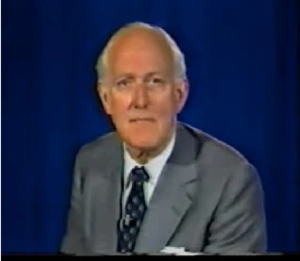Antony Fisher
(businessman, cut-out?) | |
|---|---|
 | |
| Born | 28 June 1915 |
| Died | 8 July 1988 (Age 73) San Francisco |
| Nationality | British |
| Alma mater | Eton College, Trinity College (Cambridge) |
| Children | Linda Whetstone |
| Founder of | Atlas Network, Centre for Research into Post-Communist Economies, Civitas, Institute of Economic Affairs, Manhattan Institute for Policy Research |
| Member of | Mont Pelerin Society |
| Relatives | Rachel Whetstone |
Founded over 150 libertarian think tanks, including Institute of Economic Affairs, Manhattan Institute and Atlas Network. | |
Sir Antony George Anson Fisher, nicknamed AGAF, was a British businessman and founder of think tanks, some with CIA connections.
He participated in the formation of various libertarian organisations during the second half of the twentieth century, including the Institute of Economic Affairs and the Atlas Network. Through Atlas, he helped establish up to 150 other institutions worldwide.
Early life
Antony Fisher was born on 28 June 1915, into a wealthy mining family.[1][2] He was two years old when his father was killed by a sniper in Gaza during World War I.[3][4]
He was educated at Eton College.[1][4] He graduated from Trinity College, Cambridge, with a degree in engineering.[1][4]
Business career
In 1952, he launched his company, Buxted Chickens, the first battery chicken farm. He makes it grow fastm and became a millionaire.[5] He uses his fortune to set up a network of organizations promoting laissez-faire capitalism.
Career
In 1971 Fisher founded the International Institute for Economic Research, which went to spawn both the Atlas Network in 1981 and the International Policy Network in 2001. Through these operations, Fisher provided financial and operational support for a huge number of fledgling think-tanks, most of which would not exist without his influence.
He was invited in 1975 to become co-director of the Fraser Institute in Vancouver, founded by the Canadian businessman T. Patrick Boyle in 1974.
Fisher went to New York where in 1977 he set up the International Center for Economic Policy Studies (ICEPS), later renamed the Manhattan Institute. "The incorporation documents for the ICEPS were signed by prominent attorney Bill Casey, later Director of the Central Intelligence Agency". Under the directorship of William Hammett the Manhattan Institute became probably Fisher's greatest success after the IEA.[6]
In 1977, Cockett wrote, Fisher moved to San Francisco "with his second wife Dorian, who he had met through the Mont Pelerin Society, and founded the Pacific Research Institute in 1979" and Fisher and Milton Friedman lived in the same apartment block in San Francisco during the 1980s. In the late 1970s, Fisher assisted Greg Lindsay in the development of the Centre for Independent Studies in Sydney.
References
- ↑ a b c John Blundell, Ladies for Liberty: Women who Made a Difference in American History, New York City: Algora Publishing, 2011, chapter 20: 'Dorian Fisher', pp. 195–200 [1]
- ↑ https://newrepublic.com/article/175488/meet-shadowy-global-network-vilifying-climate-protesters
- ↑ Founder's Story, Atlas Economic Research Foundation
- ↑ a b c Gerald Frost, Antony Fisher: Champion of Liberty, Profile Books, 2002, condensed by David Moller [2]
- ↑ https://theecologist.org/2018/aug/06/quite-chain-consequences-chicken-farmer-fakenomics
- ↑ Cockett, Richard (1994). Thinking the unthinkable : think-tanks and the economic counter-revolution 1931-1983. London: HarperCollins. ISBN 9780006375869.